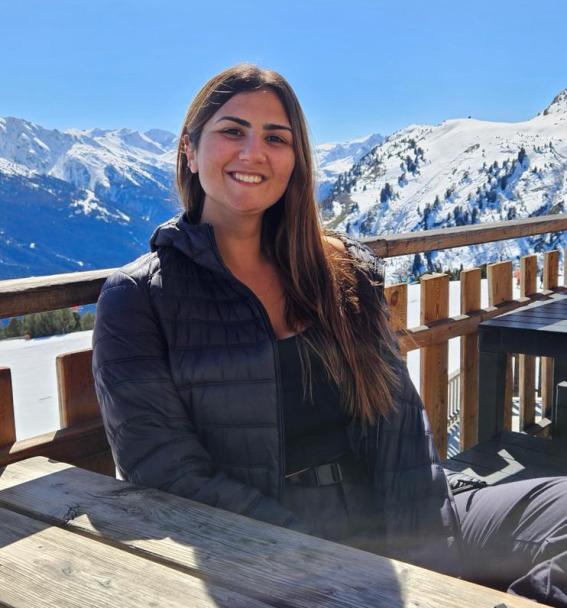Yuval Tamir Awarded PBC Scholarship for Outstanding Ph.D. Candidates

Yuval, a Ph.D. candidate at Prof. Moti Fridman's lab, researches Temporal Multimode Quantum Optics. "I won the advisor lottery," she says of Prof. Fridman
Ph.D. candidate Yuval Tamir from Prof. Moti Fridman's lab has won the CHE's PBC scholarship for outstanding female Ph.D. candidates in high-tech fields. This is a highly competitive scholarship, awarded to no more than ten Ph.D. candidates from universities across the country. "The main criterion for selection is research excellence, and the application included my master's thesis and my Ph.D. research proposal, list of published papers, list of presentations at international conferences, and more," Yuval recounts. She is the only Ph.D. candidate from Bar-Ilan University to win this year's scholarship.
Yuval's Ph.D. research includes ultrafast nonlinear temporal dynamics and their extension to the quantum and multimode regimes. She began her academic journey here at the Faculty of Engineering, in the Electrical Engineering department and in the electro-optics and signal processing tracks. During her undergraduate studies, she joined Prof. Moti Fridman's research group in the electro-optics track, then went on to pursue her M.Sc. and Ph.D. degrees under his supervision. "Having Moti is like winning the advisor lottery. He gives me full support and pushes me forward with every step I take, encourages me to take an active part and present my work at various international conferences, and gives my ideas a proper stage."
Her research focuses on temporal quantum optics, with emphasis on developing temporal quantum cavities. "An optical cavity is a device that allows the light within it to oscillate, to propagate back and forth inside the system, enabling it to be amplified and stabilized. Due to these properties, optical cavities are found in almost every modern optical technology, including laser creation, spectroscopy, and entangled photon pair generation, to name a few," she explains. "I am researching a temporal cavity that is based on time-lenses. The cavity we developed allows light to oscillate in time rather than space, thus creating an analogy to a spatial cavity. Our system has high temporal resolution and is sensitive to ultrafast spectral and temporal changes, which allows us to study spatio-temporal dynamics and measure ultrafast nonlinear phenomena. In addition, we can introduce light in a quantum state into the cavity, which means we can study, measure and image ultrafast quantum dynamics in high temporal resolution."
This is Yuval's second year as a Ph.D. student, and she intends to pursue postdoctoral studies once she graduates. She wishes to thank the Faculty of Engineering: "The atmosphere at the faculty cannot be taken for granted – it is a rare combination of constant drive to excellence, support, and a nurturing environment that allows you to fully commit to research. I especially like to thank Prof. Orit Shefi, Dean of the Faculty, for her support and for being a true role model; Dr. Hamootal Duadi, for her extensive knowledge, dedication, and help over the years; and Sara Meir and our group members for their support and encouragement".
Last Updated Date : 25/11/2025



